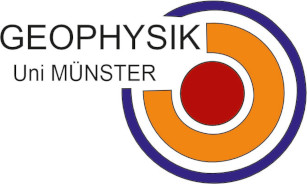Bachelor of Science Geophysics
Overview
Geophysics is located at the interface between physics and geoscience. It combines the phenomenological observations of physical properties of the earth’s crust and of natural processes such as earthquakes and volcanism with the use of mathematical and physical methods to reach a quantitative understanding of these phenomena. Therefore, besides providing a sound basis in geophysics and geoscience, the three-year long Bachelor’s course in Geophysics provides a solid background in mathematics, experimental and theoretical physics as well as methodical knowledge in data processing and programming. Geophysical practical training, an international field course and interdisciplinary studies complement the curriculum. After the successful completion of the study course the academic degree Bachelor of Science (B.Sc.) in Geophysics is awarded.
The following graphic depicts the general structure of the study course:
| Modules for the Bachelor of Science in Geophysics | |||||||
|
Semester |
1 (WS) |
Geophysics I |
Physics I |
Fundamental |
Geosciences I |
||
| 2 (SS) |
Physics II |
||||||
| 3 (WS) |
Geophysics II |
Physics III |
Integration |
Geosciences I |
|||
| 4 (SS) |
Geophysics IV |
Geophysics III |
Basic |
Interdisciplinary |
Geosciences II |
||
| 5 (WS) |
Geophysics VI |
Geophysics V |
|||||
| 6 (SS) |
Bachelor's Project |
||||||
|
M: mandatory module |
EM: elective mandatory module |
||||||
Content of Modules:
- Geophysics I-VI
These modules cover the geophysics part of the program. In the first two semesters, students gain a broad overview and are acquainted with the different branches of the field. From the third semester on, dedicated modules cover individual areas of geophysics. The students' knowledge is successively build up and connections are made to current research topics.
- Geoscience I and II
These modules supplement the geophysical perspective with knowledge from other areas of geoscience such as geology, geochemistry, petrography, hydrogeology etc. Thereby, students get a complete picture of the system of the earth.
- Physics I-III
These modules provide an overview of the various topics of classical physics, starting with the mechanics of particles and systems of particles, thermodynamics, electromagnetism, electrodynamics and optics up to a first glance at the limits of classical physics and the appearance of quantum effects. Theoretical complements to Physics II and III are dedicated to the fields of analytical mechanics and special relativity. These modules are identical with the respective modules of the Bachelor’s study course in physics.
- Fundamental Mathematics and Integration Theory
For both the analysis of geophysical data as well as for the model-building and simulation of geophysical processes a sound education in mathematics is needed. These two modules cover the fundamentals of analysis and linear algebra relevant for geophysics. They are identical with the respective modules of the Bachelor’s study course in physics.
- Basic Laboratory Course
In physics, experiments play a key role in the examination of laws of nature. During this module, the conduct of experiments, the written presentation of results and their critical evaluation are trained.
- Interdisciplinary Studies
The study course is complemented by interdisciplinary studies. Students can choose from a broad range of subjects related to geoscience or from the General Studies program offered at the University of Münster.
- Bachelor’s Project
First experiences with independent scientific work are made in the course of the Bachelor’s project. Its results are summarized in a written thesis and presented in a talk.

